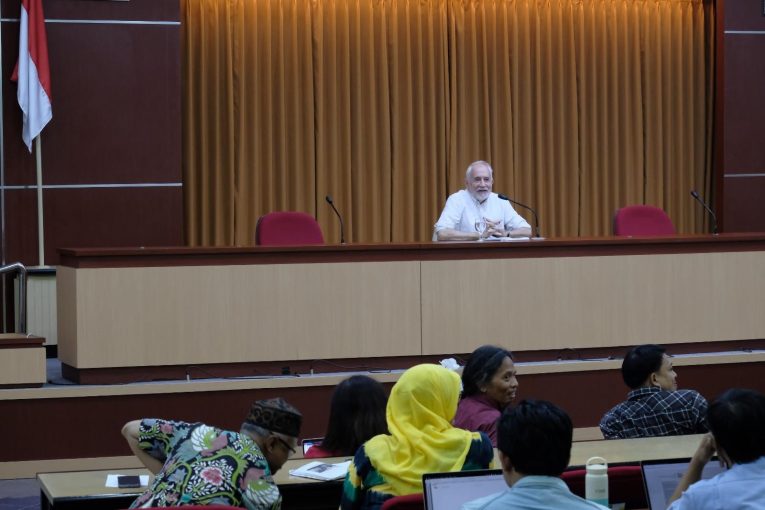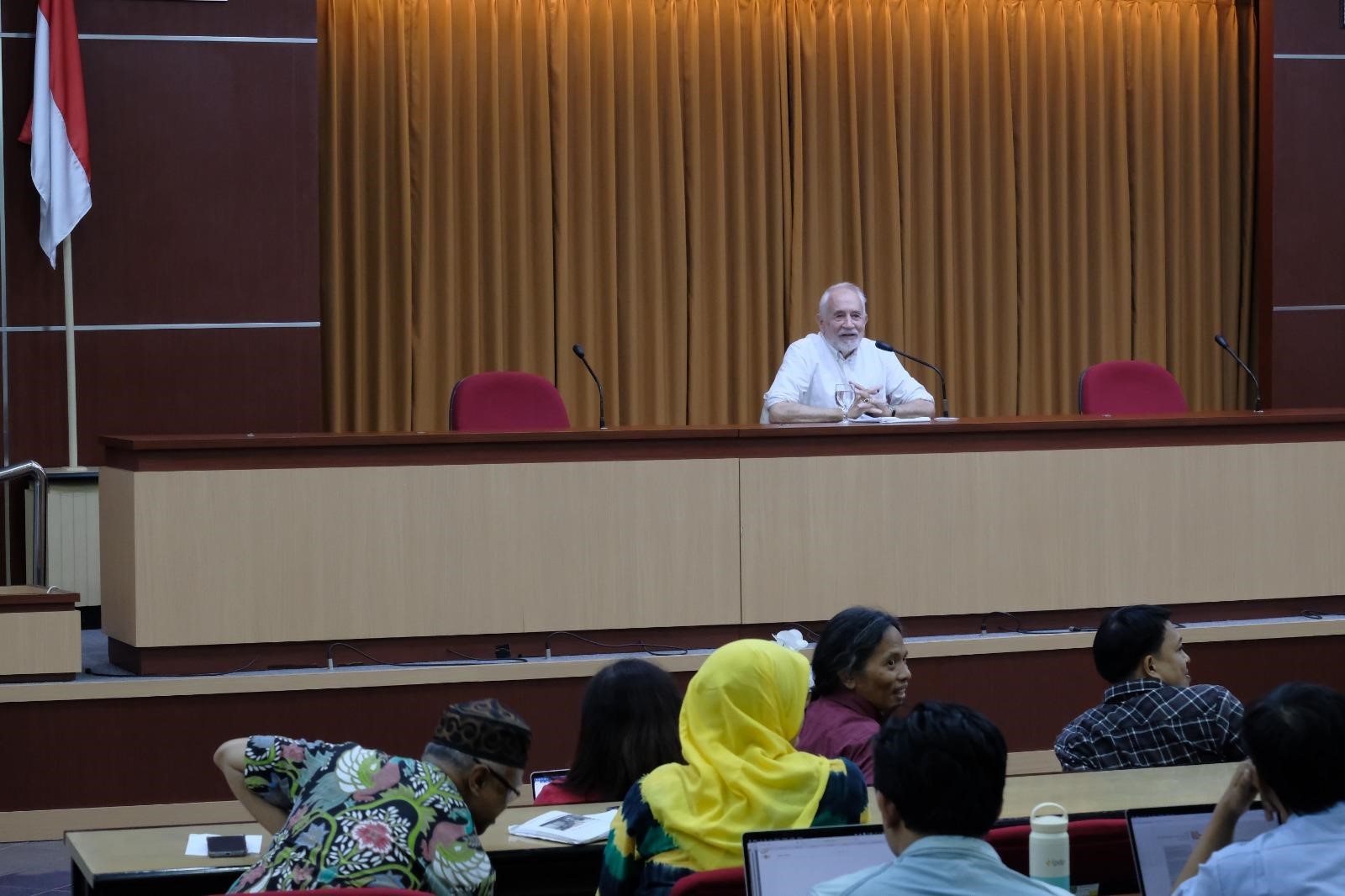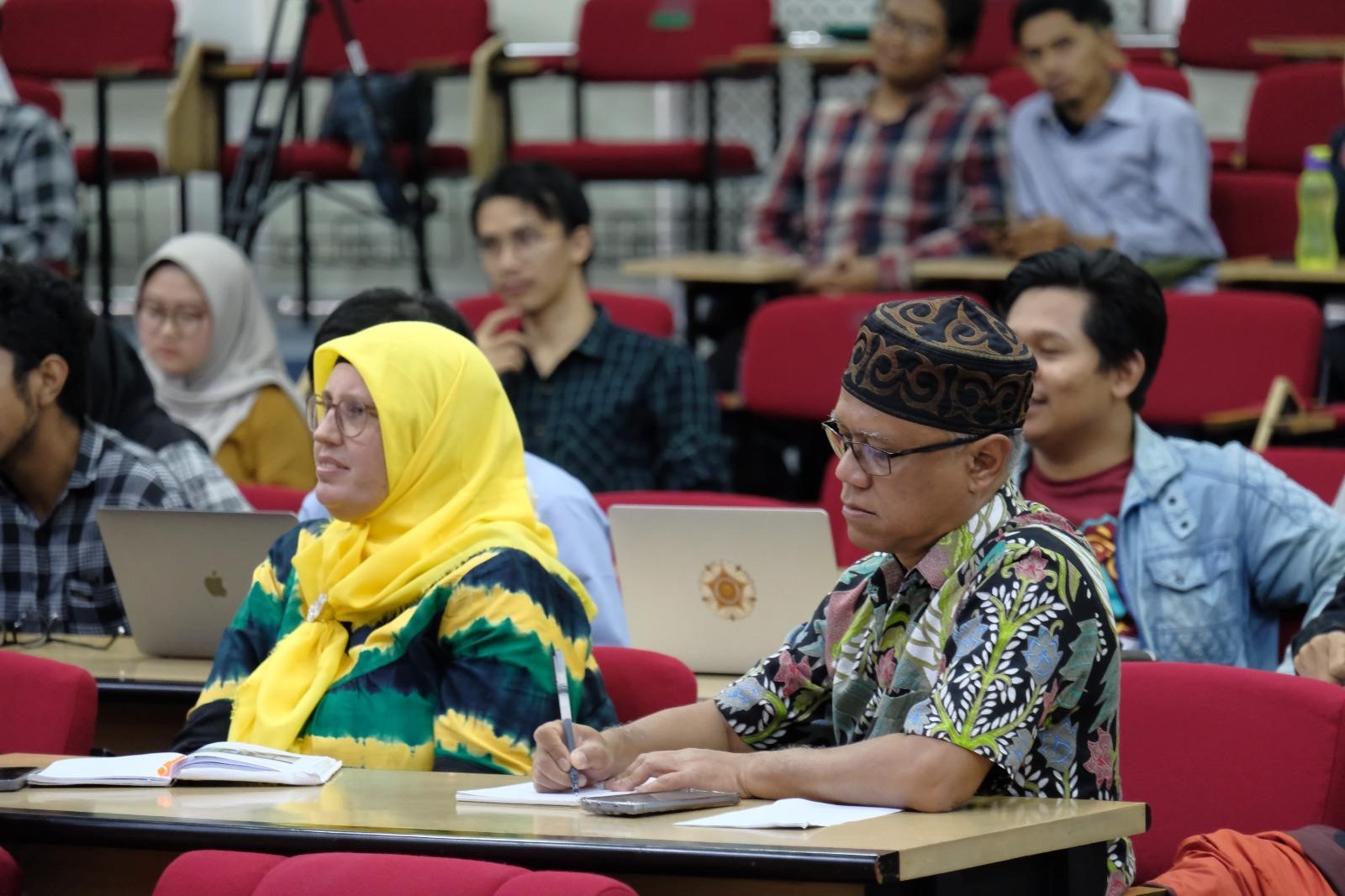
On Wednesday (September 25th), the Wednesday Forum from the Religious Studies and Cross-Cultural Studies Program, or Center for Religious and Cross-Cultural Studies (CRCS), at the Graduate School of Gadjah Mada University (UGM), organized a special discussion in collaboration with Sanata Dharma University at the Auditorium on the 5th Floor of UGM’s Graduate School Building. Presented at the discussion were the Rector of Sanata Dharma University, Rm. Albertus Bagus Laksana, S.J., S.S., Ph.D., and the Chief of the CRCS Program, Dr. Samsul Maarif, M.A.
A highlight of the discussion was the presence of Professor James Morris, a leading expert in the humanities and Islamic philosophy from the Theology Department at Boston College. His insights into the works of Ibn ‘Arabi provided an understanding of the spiritual universal dimensions that transcend cultural and religious boundaries. “I am very happy to be back in Indonesia after nine years, and I thank my former student, Rm. Bagus, for inviting me. I have learned a lot from Rm. Bagus over the years,” said Professor James.
One irony surrounding contemporary religious studies is the acknowledgment of phenomenological universality and the need for political, sociological, historical, and cultural approaches to studying all religious traditions, both large and small. However, there is a strange reluctance among practitioners to openly discuss the universal spiritual and humanistic dimensions that are also embraced by individuals from all religious backgrounds. This reluctance often hinders meaningful dialogue and understanding.
The discussion aimed to revisit the spiritual and intellectual understandings found in the works of Ibn ‘Arabi. Professor Morris emphasized the importance of overcoming barriers that prevent academics from engaging with the spiritual dimensions of religious traditions. He argued that recognizing these universal aspects could foster global partnerships and collaborative efforts in addressing conflicts arising from religious misunderstandings.
In his presentation, Professor Morris highlighted Ibn ‘Arabi’s unique perspective on spirituality, which emphasizes the interconnectedness of all beings and the divine. He pointed out that Ibn ‘Arabi’s teachings encourage individuals to look beyond their religious affiliations and recognize the shared human experiences that bind us all. This perspective is particularly crucial in today’s world, where conflicts often arise from religious differences.
Keywords: cultural diversity, conflict, global partnership, SDG 4: Quality Education, SDG 16: Peace, Justice, and Strong Institutions, SDG 17: Partnerships for the Goals
Author: Asti Rahmaningrum


